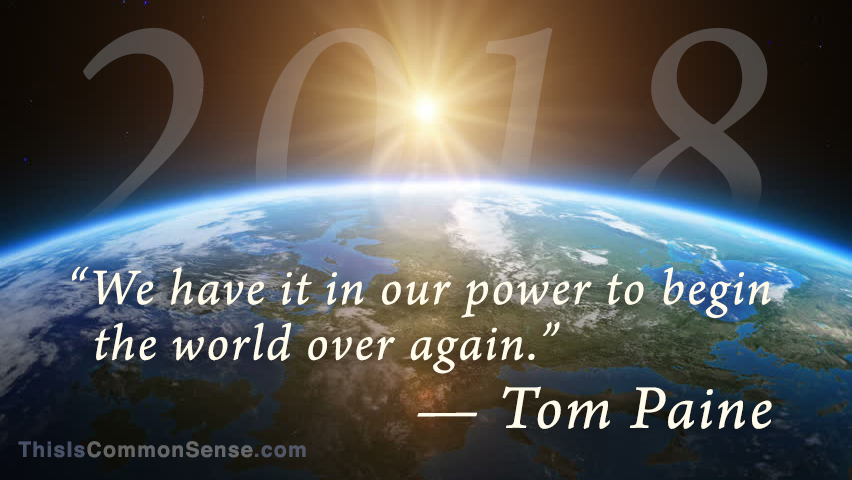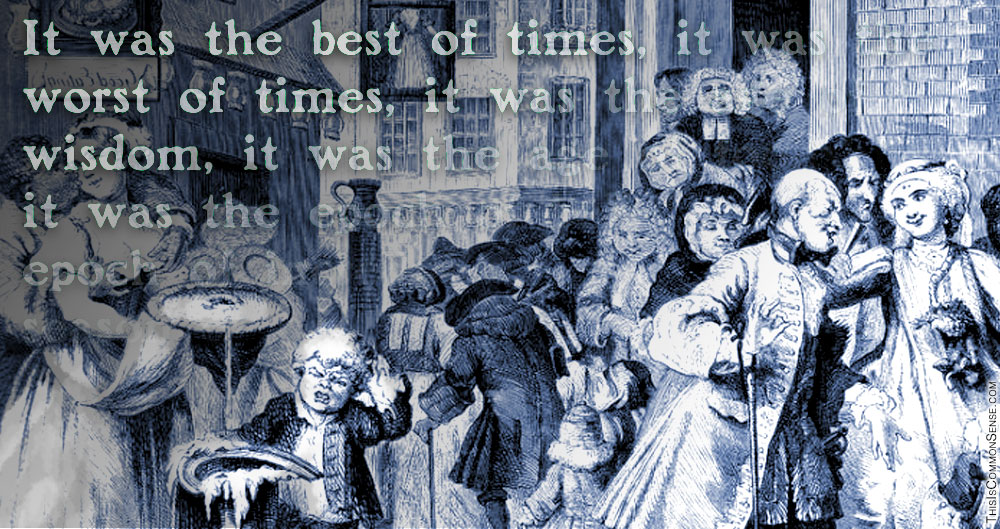There’s a quiet on Christmas morning . . . after Santa has come and gone . . . and the kids are still sound asleep . . . sugar plum fairies dancing to their gentle snoring.
A moment to stop and think.
I hope they’ll like their presents; they always do. There’s so much love my wife and I want to share, to give to them.
Of course, the biggest gifts are never under the tree. The most important being a stable home, with love, and the freedom for children to grow into themselves.
My parents gave me that . . . along with the bicycles and baseball gloves and some really good books. I’ve tried to be the same kind of parent.

Another incredible endowment I’ve enjoyed is to be born in a country “conceived in liberty.” A place where individual citizens are the sovereigns, creating government to be a servant and not a master. Land of the free.
What a gift!
But Tom Paine told us that, “What we obtain too cheap, we esteem too lightly, ’tis dearness only that gives everything its value. Heaven knows how to put a proper price upon its goods; and it would be strange indeed if so celestial an article as FREEDOM should not be highly rated.”
Freedom is under siege. And, therefore, we who love freedom, grateful for our historic luck, must come together to protect our “expensive” gift.
Some may get discouraged after setbacks, but none of us got involved in politics because we like “the game” and figured we’d pile up a shelf of trophies. We’re engaged because we must be and we seek victories because, as Churchill once put it, “without victory, there is no survival.”
In 1776, on this very day, General George Washington and his soldiers of the American Revolution crossed the Delaware River to score a surprise military victory against the British at Trenton, New Jersey.
Thank goodness, for these brave patriots and their muskets. Three Americans gave their lives in the battle. To secure our liberty.
Today, the Gift has been handed to us. Not to play with on Christmas morning and forget about, not to let get broken without our fixing it, but to protect and defend and cherish.
My commentary strives to illuminate, at times amuse and, most of all, to motivate toward action, bringing citizens together. Citizens in Charge protects the initiative process — the best weapon citizens have to cut taxes, term-limit politicians, stop the drug war, protect property rights, and place limits on government. The Liberty Initiative Fund partners with leaders across the nation putting measures on the ballot to protect freedom and hold government accountable.
Thanks for your gifts to these efforts and to the many other important ones. We aim to protect the precious gift of freedom.
This is Common Sense. I’m Paul Jacob. Merry Christmas! Happy Holidays!

—
See all recent commentary
(simplified and organized)






